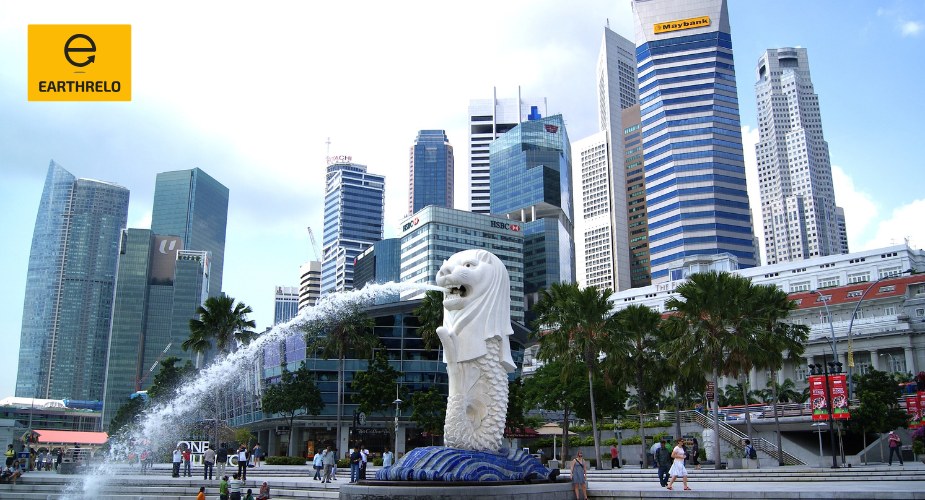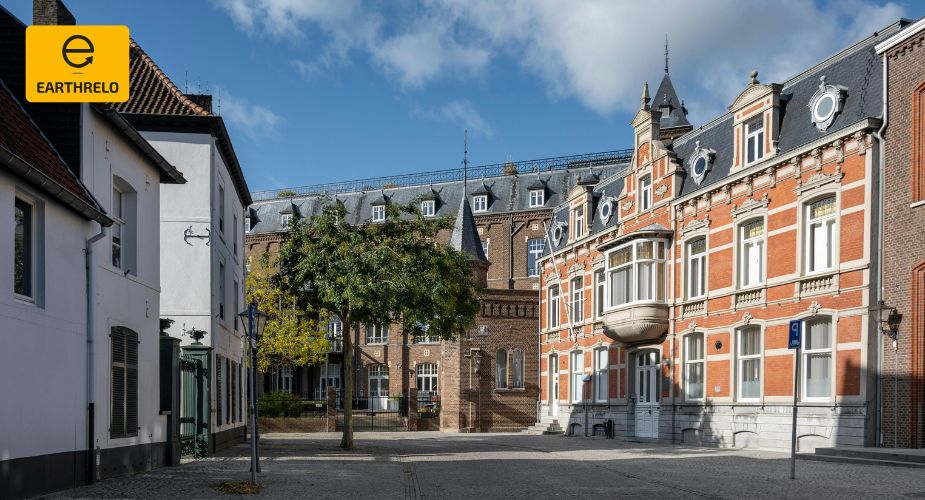- December 13, 2024
Relocating to Singapore can be an exciting yet challenging journey. Known for its vibrant multicultural society, world-class infrastructure, and booming economy, Singapore attracts thousands of expats each year. Whether you’re moving for work, education, or a fresh start, thorough preparation is the key to making your transition seamless.
From understanding the local culture to managing the cost of living, there are many factors to consider before you pack your bags. This guide offers practical insights to help you navigate your move confidently while settling into life in this dynamic city-state.
Relocating to Singapore – Understanding Culture and Lifestyle
Singapore is a melting pot of cultures, blending the traditions of its Chinese, Malay, Indian, and Western influences. This rich diversity is reflected in its food, festivals, and daily interactions, making it an enriching place to live for those relocating to Singapore.
Embracing Multiculturalism
The harmonious coexistence of different ethnic groups is one of Singapore’s defining features. As you settle into your new home, you’ll find plenty of opportunities to celebrate cultural festivals such as Chinese New Year, Deepavali, and Hari Raya Puasa.
Understanding local customs, such as removing shoes before entering a home and respecting personal space, will help you integrate smoothly. Additionally, English is widely spoken, making communication easier for many expats.
Daily Lifestyle and Amenities
Singapore offers a modern, urban lifestyle with excellent amenities, including clean streets, efficient public services, and abundant green spaces. From shopping malls and hawker centers to serene parks, there’s something for everyone to enjoy.
Whether you prefer the bustling city vibe or a more laid-back environment, Singapore has neighborhoods to suit every lifestyle.
Cost of Living in Singapore
One of the most important aspects to evaluate when relocating to Singapore is the cost of living. Known for its high living standards, the city-state can also be one of the most expensive places to reside. However, with careful budgeting, you can manage your expenses effectively.
Housing Costs
Housing is often the largest expense for expats. Options range from affordable Housing Development Board (HDB) flats to luxurious private condominiums. Monthly rental prices can vary widely depending on the location, size, and type of property. Central areas like Orchard Road and Marina Bay tend to be more expensive, while suburban districts offer more budget-friendly options.
Transportation Expenses
Singapore boasts an efficient and affordable public transportation system. The Mass Rapid Transit (MRT) and bus networks provide seamless connectivity across the island. For those who prefer driving, owning a car in Singapore involves significant costs, including a Certificate of Entitlement (COE) and parking fees.
Dining and Groceries
Food options in Singapore cater to every budget. Dining at hawker centers is highly affordable, offering diverse cuisines that are both delicious and economical. Alternatively, dining at high-end restaurants can quickly add to your monthly expenses. Grocery shopping also varies based on your preferences for local or imported goods.
Moving To Singapore?
Contact Us TodayUtility and Healthcare Costs
Utilities, including electricity, water, and gas, can add up, particularly with frequent use of air conditioning. Additionally, while Singapore’s healthcare system is renowned for its quality, private healthcare services can be pricey. Expats should consider comprehensive health insurance to manage these costs effectively.
Budgeting Tips
- Explore housing options outside prime areas to save on rent.
- Take advantage of public transport instead of owning a car.
- Shop at wet markets and local grocery stores for affordable produce.
By planning your finances carefully, you can enjoy the benefits of living in Singapore while staying within your means.
Housing and Accommodation Options
Finding the right place to live is one of the most critical steps when relocating to Singapore. With a variety of housing options available, choosing the perfect home depends on your budget, lifestyle, and preferences.
Types of Housing
Singapore offers a range of housing types suited to different needs:
- HDB Flats: These government-subsidized apartments are a popular choice for locals and expats seeking affordable housing. They are well-maintained and located in convenient areas, often near public transport and amenities.
- Condominiums: Private condominiums provide additional amenities such as swimming pools, gyms, and security. These are ideal for individuals or families looking for more privacy and comfort.
- Landed Properties: If you prefer spacious living, landed homes such as bungalows or terraced houses offer plenty of room but come at a higher cost.
Choosing the Right Neighborhood
Singapore’s neighborhoods each have their unique charm and benefits. While some areas are bustling with activity, others offer a quieter, family-friendly environment. Consider factors like proximity to work, schools, and public transport when selecting your neighborhood.
- Central areas, like Marina Bay, are ideal for those who enjoy a vibrant urban lifestyle.
- Suburban neighborhoods like Tampines or Jurong offer a more laid-back pace and are often more affordable.
Rental Process
Renting a home in Singapore involves signing a lease agreement, typically for one to two years. It’s common to pay a security deposit equivalent to one or two months’ rent. Be sure to clarify terms such as maintenance responsibilities and utility payments before finalizing your lease.
Tips for Finding Housing
- Visit properties in person to assess their condition.
- Ensure your lease agreement includes all terms in writing.
- Research the market to understand fair rental prices.
Employment Opportunities and Work Culture
Relocating to Singapore often involves seeking new career opportunities. As a global business hub, Singapore offers a dynamic job market, but understanding its work culture is key to thriving professionally.
Key Industries
Singapore’s economy is diverse, with robust sectors such as finance, technology, healthcare, and manufacturing. Expats relocating to Singapore can explore opportunities in these fields, depending on their expertise and qualifications.
Job Market Insights
- Singapore values skilled professionals and frequently seeks talent in emerging sectors like fintech and green technologies.
- Networking can be instrumental in finding job opportunities. Attending professional events or joining local business groups can help you connect with potential employers.
Understanding Work Culture
Singapore’s work culture emphasizes efficiency, respect, and collaboration. Punctuality and professionalism are highly regarded, and many workplaces have a hierarchical structure. It’s important to maintain open communication with colleagues while respecting cultural differences.
Navigating the Job Search
Finding a job while relocating to Singapore requires a proactive approach:
- Tailor your resume to match the expectations of Singaporean employers.
- Leverage online job portals and recruitment agencies for opportunities.
- Prepare for interviews by researching the company’s culture and industry trends.
By immersing yourself in the local work environment, you’ll gain a better understanding of what it takes to succeed in Singapore’s competitive job market.
Also read: Moving to Singapore from the US
Education and Schooling
If you’re relocating to Singapore with children, understanding the education system is crucial. The city-state is renowned for its high-quality education, offering a range of schooling options for both local and expatriate families.
Overview of the Education System
Singapore’s education system emphasizes academic excellence and holistic development. Schools are structured across various levels:
- Preschool: Early childhood education focuses on foundational skills in literacy and numeracy.
- Primary and Secondary Schools: Public schools follow a rigorous curriculum, while private and international schools cater to diverse educational needs.
- Tertiary Education: Institutions like polytechnics and universities provide advanced education opportunities.
Public vs. International Schools
- Public Schools: These are cost-effective and offer a curriculum aligned with Singapore’s national framework. They may require proficiency in local languages, such as Mandarin or Malay.
- International Schools: Tailored to expatriates, these schools provide globally recognized curricula, such as the International Baccalaureate (IB) or British GCSE. They are ideal for families seeking continuity in their children’s education.
Enrollment Process
- Research school options and visit campuses if possible.
- Prepare necessary documents, such as identification and past academic records.
- Apply early, as spaces in top schools can be limited.
Tips for Choosing the Right School
- Consider proximity to home and work for convenient commuting.
- Align the curriculum with your child’s future academic goals.
- Evaluate extracurricular offerings to ensure a well-rounded education.
Healthcare System
Singapore’s healthcare system is one of the best in the world, providing high-quality services to residents and expatriates alike. Whether you’re seeking routine care or specialized treatment, it’s essential to familiarize yourself with the healthcare options available when relocating to Singapore.
Public and Private Healthcare Options
- Public Healthcare: Government hospitals and clinics offer affordable medical services with state-of-the-art facilities.
- Private Healthcare: Private hospitals provide shorter waiting times and more personalized care but are more expensive.
Health Insurance Requirements
Expats are encouraged to secure comprehensive health insurance to manage medical costs effectively. While some employers offer insurance as part of a benefits package, it’s wise to review coverage to ensure it meets your needs.
Accessing Healthcare Services
- Visit general practitioners for routine medical care and referrals.
- For emergencies, hospitals such as Singapore General Hospital and Mount Elizabeth are well-equipped to handle critical cases.
- Pharmacies are widely available, offering over-the-counter and prescription medications.
Tips for Staying Healthy
- Register with a local clinic to establish a primary care provider.
- Stay updated on vaccinations, particularly if you’re traveling to nearby countries.
- Embrace a healthy lifestyle with Singapore’s numerous parks and fitness facilities.
Transportation and Connectivity
Singapore is renowned for its efficient transportation system, making it easy for residents to commute across the island. Whether you prefer public transport or owning a vehicle, understanding your options is essential when relocating to Singapore.
Public Transport
Singapore’s public transportation system is reliable, affordable, and user-friendly.
- Mass Rapid Transit (MRT): The MRT network connects major areas, ensuring quick and convenient travel.
- Buses: Buses supplement the MRT system, offering extensive coverage to all parts of the island.
- Taxis and Rideshares: These are readily available but can be more expensive during peak hours or late at night.
Owning a Vehicle
While public transport is sufficient for most residents, some may prefer owning a car for added convenience.
- Cars in Singapore are costly due to government regulations like the Certificate of Entitlement (COE).
- Consider factors such as maintenance, insurance, and parking fees when deciding whether to purchase a vehicle.
Walking and Cycling
Singapore’s compact size makes walking and cycling viable options for short distances. The city features dedicated cycling paths and pedestrian-friendly walkways, encouraging sustainable commuting.
Staying Connected
- Public Wi-Fi is available in various locations, allowing easy internet access.
- Mobile networks provide excellent coverage, and getting a local SIM card is straightforward.
Tips for Navigating the City
- Use contactless payment cards for seamless travel on public transport.
- Plan your routes using transport apps for real-time updates.
- Avoid peak hours to reduce commuting time and crowd exposure.
Social Integration and Community Engagement
Relocating to Singapore isn’t just about adjusting to a new environment; it’s also about building meaningful connections and becoming part of a vibrant community. Singapore offers numerous opportunities for social integration and recreation, ensuring expats can enjoy a fulfilling life in their new home.
Connecting with Communities
Singapore is home to a diverse population, including a thriving expat community. Joining social groups, clubs, or community centers can help you meet like-minded individuals and build friendships. From professional networking groups to hobby clubs, there are plenty of ways to get involved.
Exploring Recreational Activities
- Sports and Fitness: Enjoy facilities like gyms, swimming pools, and sports complexes across the island. Popular activities include yoga, cycling, and water sports.
- Cultural Activities: Immerse yourself in Singapore’s rich heritage by visiting museums, attending cultural festivals, and exploring local art galleries.
- Nature and Outdoors: With green spaces like East Coast Park and the Singapore Botanic Gardens, outdoor enthusiasts have ample opportunities to unwind.
Embracing Local Customs
Participating in local traditions and festivals can enhance your cultural understanding and help you feel at home. Simple gestures like learning basic phrases in Malay or Mandarin and trying local cuisines can also create connections with Singapore’s residents.
Wrapping Up
Relocating to Singapore is an exciting opportunity to experience a unique blend of cultures, a high standard of living, and a thriving urban environment. By understanding the city-state’s lifestyle, managing your costs effectively, and embracing community life, you can make your transition seamless and enjoyable.
As you prepare for this new chapter, keep an open mind and take advantage of the resources available to you. With careful planning and a willingness to adapt, Singapore can become not just a destination but a place you proudly call home.





